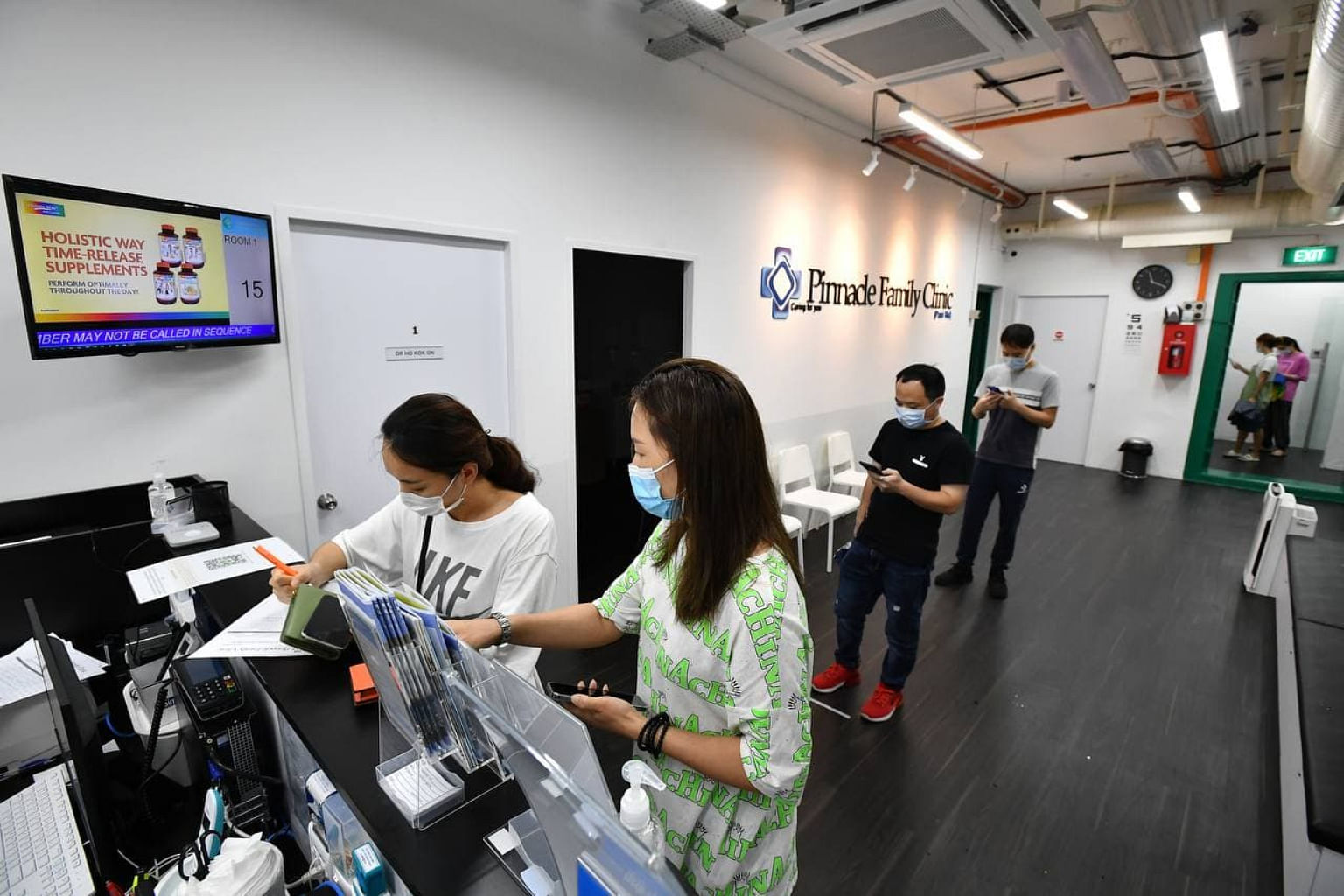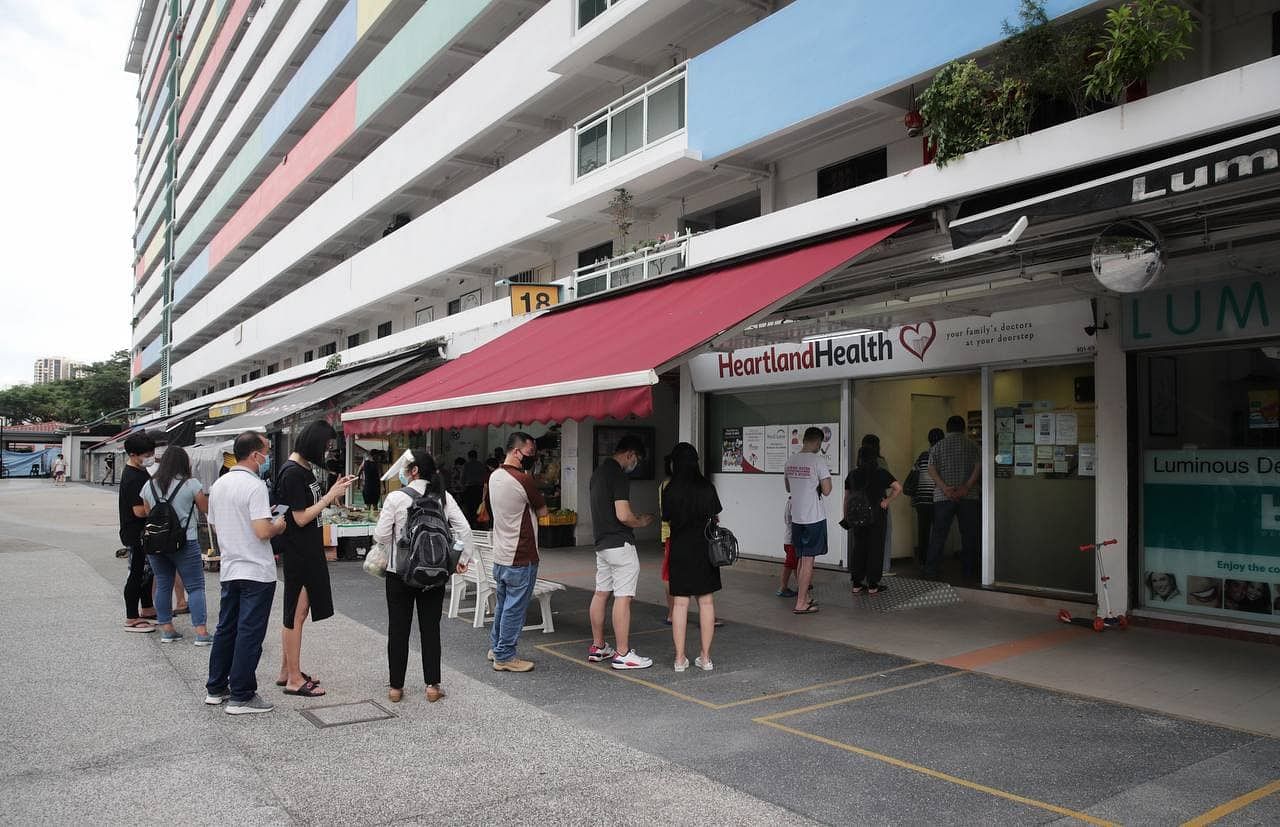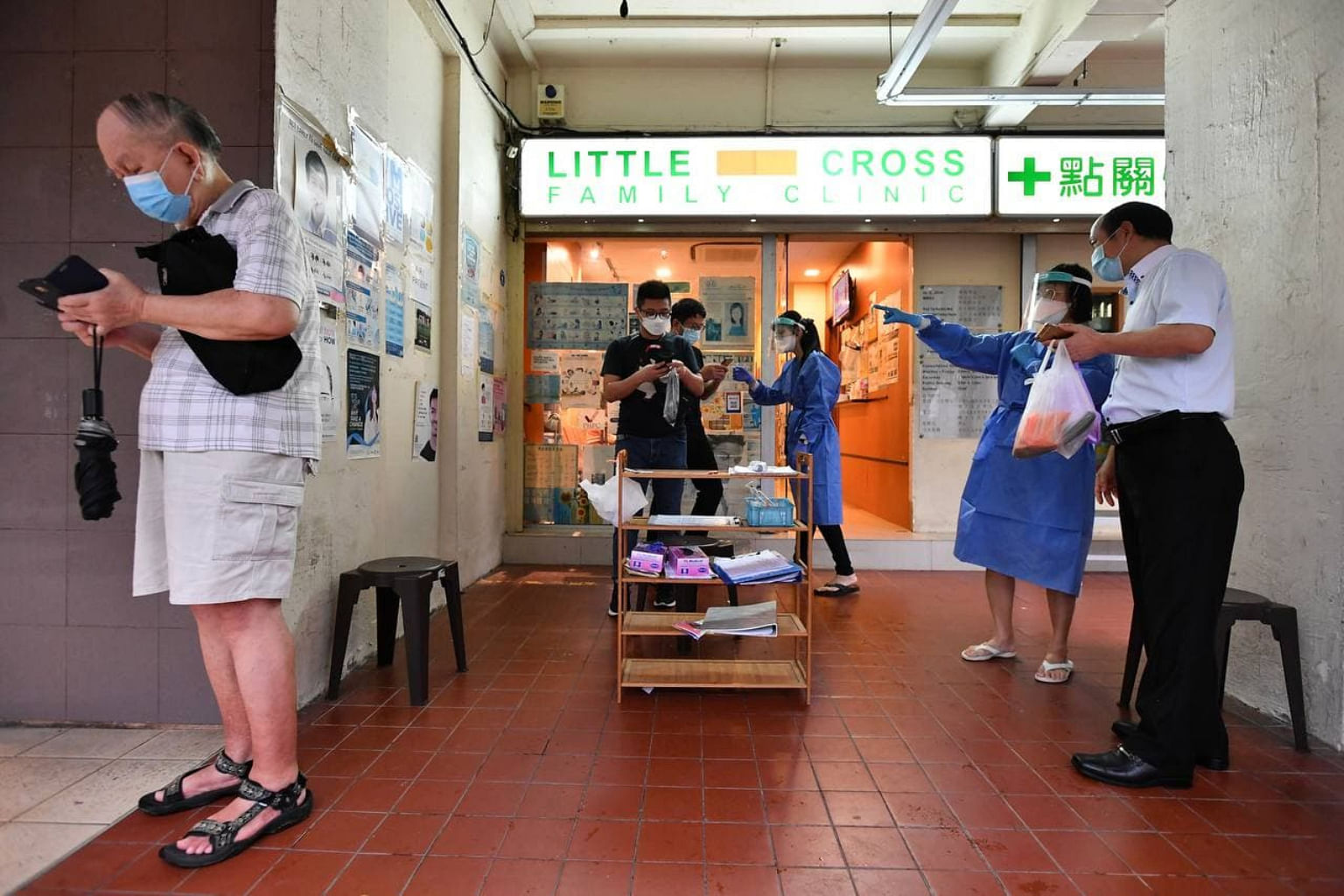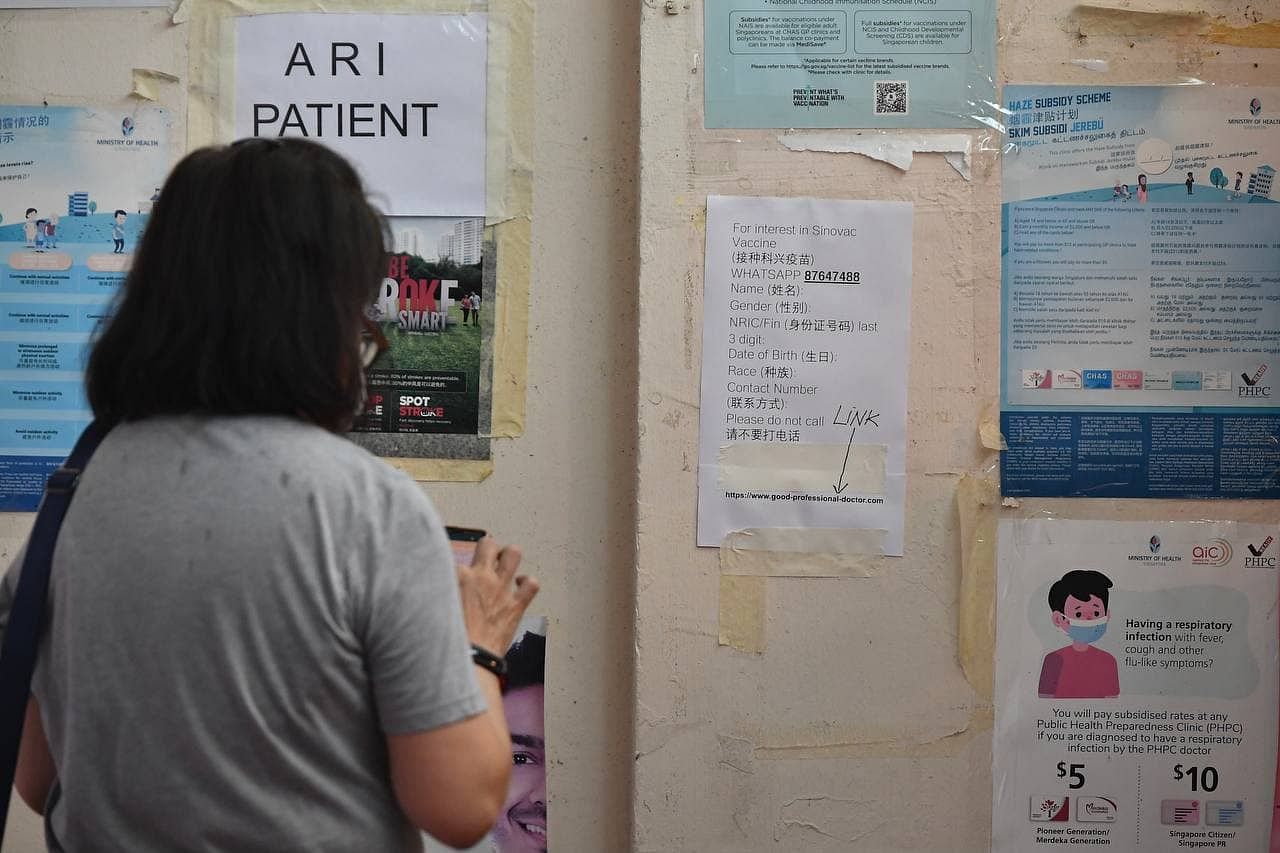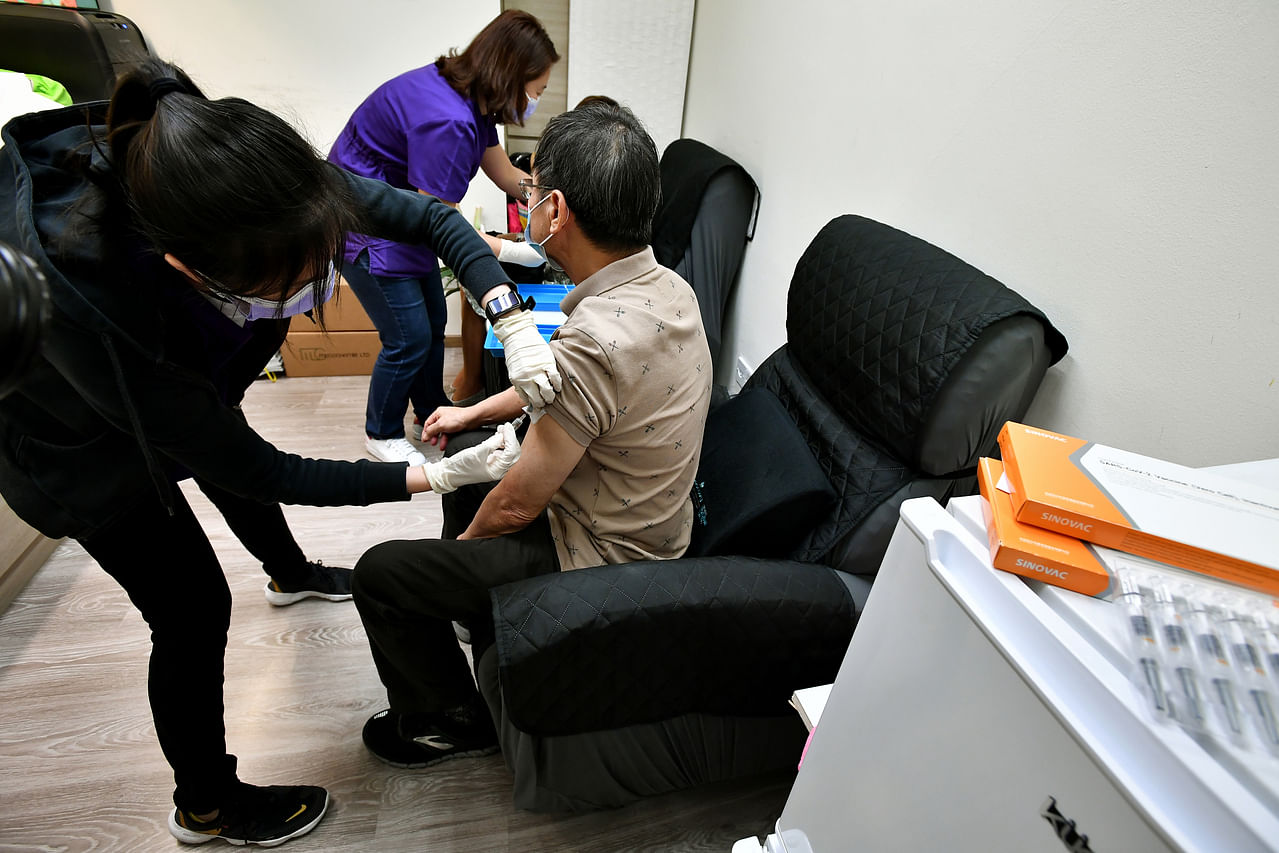from straitstimes.com:
First Sinovac Covid-19 vaccines to be given in S'pore on Friday afternoon, 2 weeks' wait for others
SINGAPORE - The first of the Sinovac Covid-19 vaccinations were administered at some private clinics on Friday afternoon (June 18), following the
authorities' approval of 24 private healthcare clinics to draw on the Government's existing stock of the vaccine.
As not all the clinics have received the vials yet, many have turned away walk-in requests from the public or placed them on registration wait lists. According to some clinics approached by The Straits Times, the waiting time for those who register successfully could be two weeks or more.
Several clinics told ST
they have been inundated with calls since the Ministry of Health's (MOH) announcement on Wednesday on the 24 selected providers.
Chinatown Wellness Clinic administered around 10 of the 200 vaccine doses it received early on Friday, to mostly Pioneer Generation citizens, and those who cannot take the Pfizer-BioNTech and Moderna vaccines for medical reasons.
Among the other clinics ready to administer the first jabs on Friday is the Rophi Clinic and HeartlandHealth's Bedok South outlet.
A spokesman for Rophi Clinic said it has received "thousands of sign-ups who have registered their interest, but all slots are booked". It gave out 20 jabs on Friday.
The Rophi Clinic spokesman said that vaccination will be conducted on non-clinic days to segregate those receiving vaccines from regular patients. The clinic is encouraging individuals to make bookings online instead of walking in to the clinic.
HeartlandHealth's Bedok South outlet received 200 vials, and so have Icon Cancer Centre and Pinnacle Family Clinic.
HeartlandHealth received the vials at its three other approved clinics by noon, and started administering jabs at its Bedok South clinic later on Friday. "We will screen every patient’s eligibility and suitability to receive the vaccines before we administer them," said a spokesman.
A spokesman for Icon Cancer Centre said it has received "close to 1,000 expressions of interest".
Those receiving their Sinovac jabs at its Farrer Park clinic will be segregated from their regular patients, and placed in a separate area for observation. Priority will be given to patients who cannot take the Pfizer and Moderna vaccines for medical reasons.
Pinnacle Family Clinic's resident physician, Dr Ho Kok On, said the clinic will start vaccinations only next Monday. It needs time to set up an observation area for those who have just been vaccinated. At least 480 patients have left their contact details with the clinic since Friday morning.
People queueing to leave their contact details inside Pinnacle Family Clinic (Pasir Ris) on June 18, 2021. ST PHOTO: LIM YAOHUI
People queueing at HeartlandHealth's Bedok South outlet on June 18, 2021. ST PHOTO: GIN TAY
On Friday morning, there was a queue of about 10 people outside Little Cross Family Clinic in Tampines Street 91 making inquiries about the vaccine. They were told to send their details to a WhatsApp number so they can be contacted when the vaccines are available, as the clinic has not received them yet.
Part-time administrator Phuah C.K., was among those making inquiries. "I fear the side effects of other vaccines," said the 72-year-old, who has a medical history of hypertension, high cholesterol, liver cirrhosis and other problems. "So far I haven't seen many reports about the side effects of the Sinovac vaccine."
Similarly, Ms Sherry Cheong, 44, was present with her father Cheong Poo Fon, 72, who has a severe allergy to aspirin. She decided to go to the clinic directly as the phone lines were engaged all of Thursday.
She hoped he could get vaccinated as soon as possible. "My dad is still working as a hawker and it's pretty dangerous for him to be exposed, so the family is worried," said Ms Cheong. "I feel they should prioritise older individuals first, over the young ones, depending on who needs it first."
People inquiring about the Sinovac vaccine outside Little Cross Family Clinic at Block 929 Tampines Street 91 on June 18, 2021. ST PHOTO: LIM YAOHUI
People who are interested in the vaccine are asked to send in their details to a WhatsApp number on a notice pasted outside Little Cross Family Clinic. ST PHOTO: LIM YAOHUI
Others who have attempted to book a vaccination slot include a 63-year-old woman who wanted to be known only as Madam Chan.
Self-employed Madam Chan called Elisa Koh Clinic & Surgery For Women, located at Mount Elizabeth Novena Specialist Centre, as it offered one of the cheapest prices for the vaccine at $10.70, and it is relatively close to her home.
The charge for Sinovac's vaccine by the 24 approved providers ranges from $10 to $25.
MOH had earlier said that as the doses are being provided to the institutions for free, they should not charge people anything other than a vaccination administration fee, which is inclusive of consultation and a 7 per cent goods and services tax.
Rophi Clinic gave out 20 jabs on June 18, 2021. ST PHOTO: LIM YAOHUI
However, Madam Chan was told to wait for more details, as the clinic had not started its vaccine roll-out yet.
She said that she was not intending to get vaccinated initially, as she felt she could deal with the risks by taking other precautions, such as going out less often and exercising regularly.
But she has since chosen to get the Sinovac jab, as "it is a traditional vaccine, just like the ones we took when we were children, so I feel more comfortable taking it".
"Now that the situation has taken a turn for the worse, I felt that I should get the vaccine to protect myself and others around me," she said.
Among those who were successfully vaccinated on Friday evening was Mr James Ng, 31, and his parents Andy Ng, 61, and Joyce Yap, 61, who got their jabs at HeartlandHealth’s Bedok South clinic.
Mr Ng said he signed up online for their slots to get vaccinated on Thursday evening, and got confirmation for their slots after midnight.
“I trust China products and technology over the mRNA technology that’s in the other vaccines,” he said.


